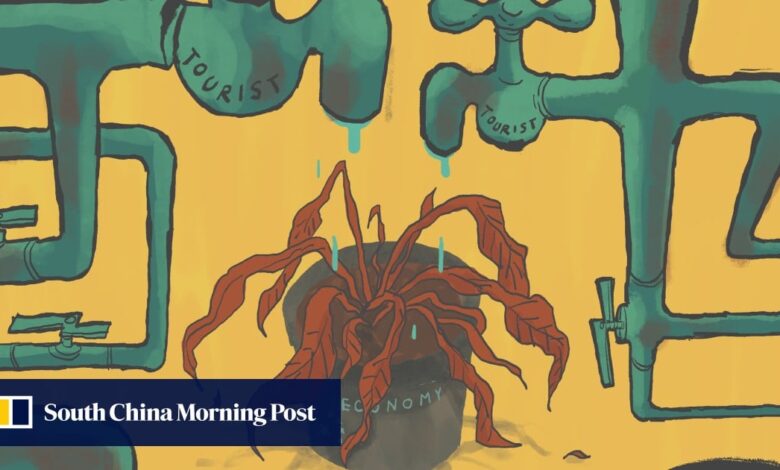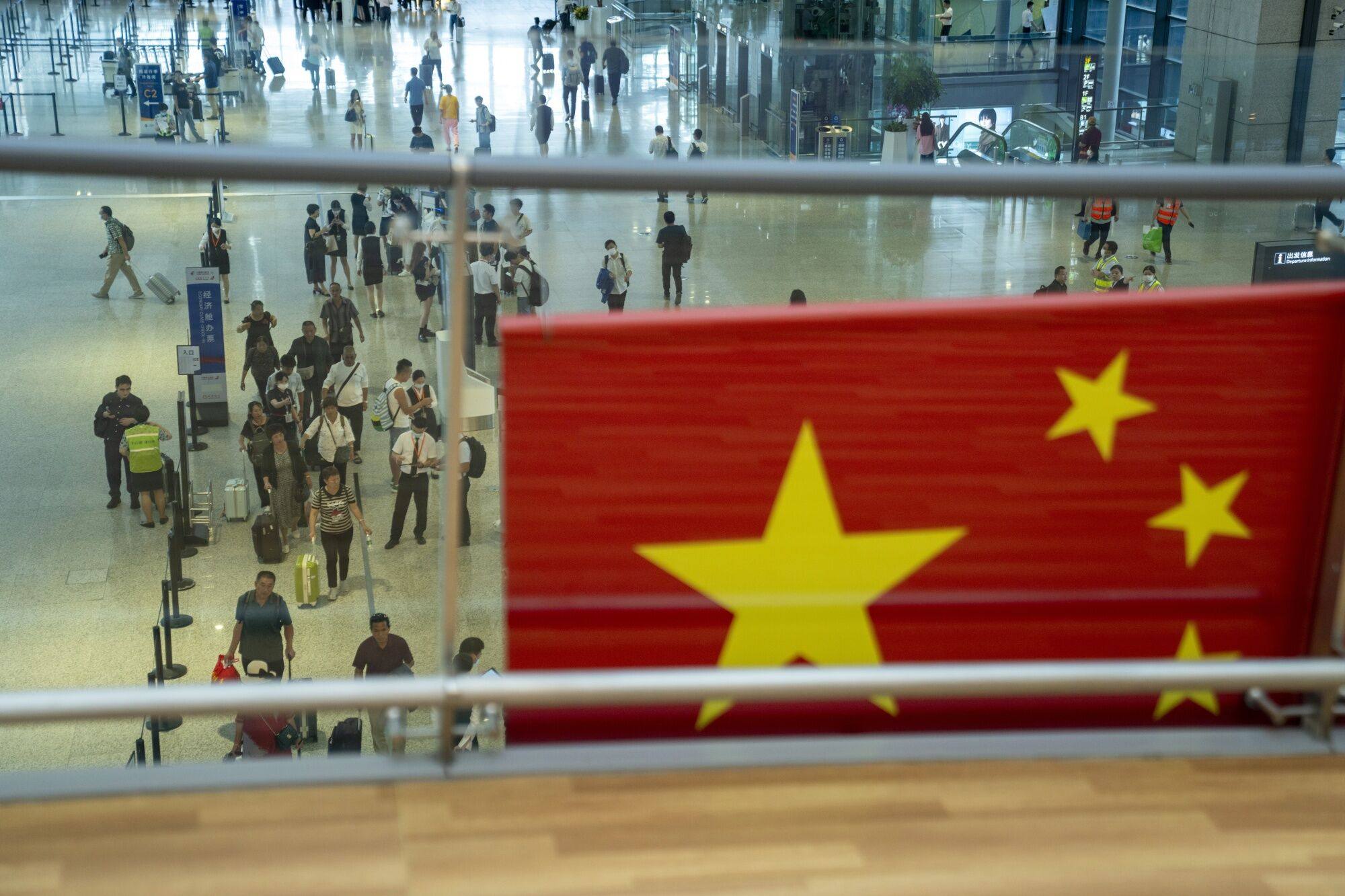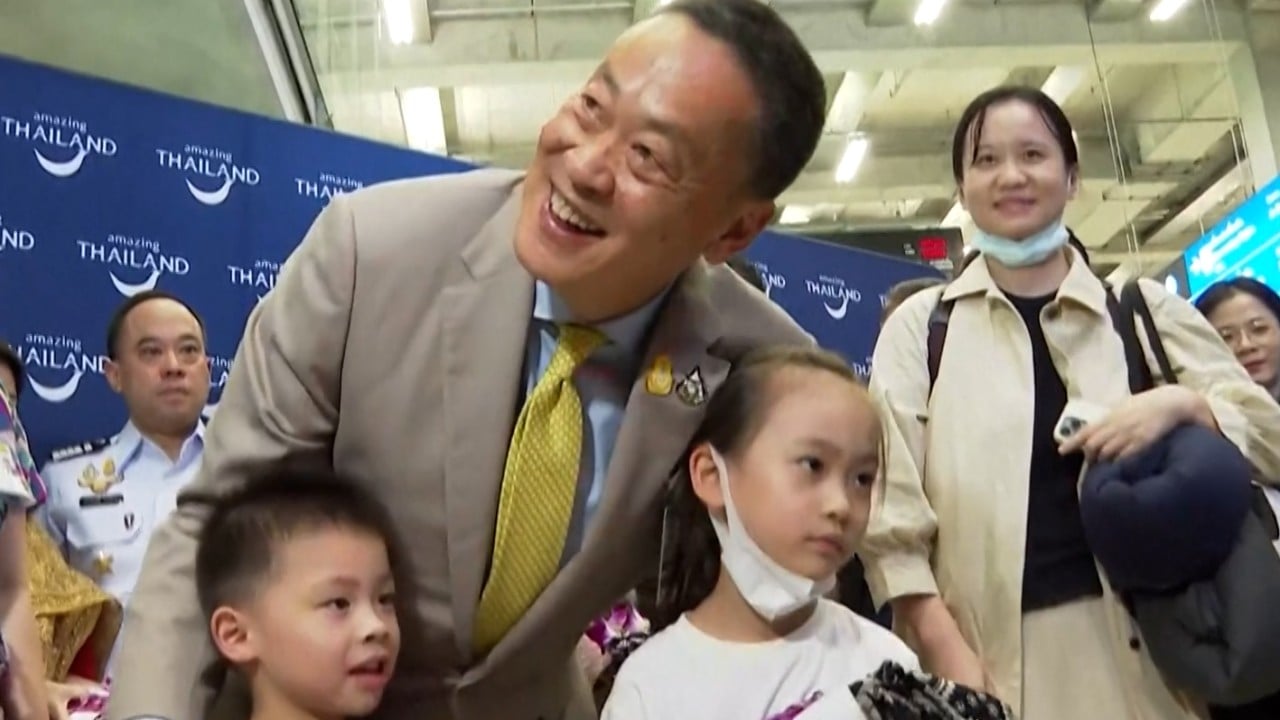Foreign tourism in China well below pre-pandemic levels, strikes at wider economy

[ad_1]
“After encountering difficulties while attempting to visit China, business executives may cut their trips short and could eventually ditch their investment plans,” Nomura’s chief China economist Ting Lu said in a September research note.
“This could lead to less supportive voices for engagement with China among foreign business executives,” he said.
“With visits by foreign scientists, technicians and corporate executives potentially failing to recover, the pace at which China climbs the value ladder could slow materially.”
It’s going to be a struggle to bring foreign tourists back to China
It’s going to be a struggle to bring foreign tourists back to China
Andrew Collier, a US citizen who lives in Hong Kong, hopes to reestablish on-the-ground contact this year with a trip to Beijing – his first foray up north since 2019.
“As a China expert, I need to visit the country and get a sense of what my friends are seeing, but I’m going to avoid reaching out to government people,” the China economist at Global Source Partners said. “The problem is that nobody knows what the rules are now.”
Foreign direct investment dropped year on year by more than 9.8 per cent in the first seven months of 2023 to US$111.8 billion, the Ministry of Commerce said.
Inbound tourism has recovered to 67 per cent of 2019 levels, before China sealed its borders, according to the travel sector analytics firm ForwardKeys.
Meanwhile, Ministry of Culture and Tourism data has shown Chinese travel agencies received 477,800 foreign tourists in the first six months of 2023, only 5.58 per cent of the same period from 2019.

The ministry said 31.88 million foreigners came to China for tourism in 2019 and spent US$77.1 billion in China.
That year, the combined contribution of the tourism sector – domestic and inbound – to China’s economy was 10.94 trillion yuan (US$1.56 trillion), 11.05 per cent of the gross domestic product.
“Often investors need to go on the ground to get a feel for the environment and meet with people to develop a more holistic picture on which to make their decisions,” Chong said. Limited contact could lead foreigners to see China only as it is portrayed in the media, he said.
‘Golden week’ tourism hits five-year high as holiday unleashes wave of demand
‘Golden week’ tourism hits five-year high as holiday unleashes wave of demand
Reduced contact also raises the odds of sharp public reactions to crises between China and other countries, in turn making it difficult for Beijing to reach any diplomatic compromises, Chong added.
China unveiled measures in August designed to make it easier for employees of foreign companies to get visas, but Chong added that the leadership’s priority on security may stymie its goal of attracting more foreign investment.
Back in 2019, tourism had driven up job creation, employing a total of 79.87 million people directly and indirectly. This accounted for 10.31 per cent of the country’s total employed population, the ministry data shows.
This is now a headache for Beijing, with the gap between 2019 and 2023 expected to impact China’s wider economy and near-term investment climate.

“For a developing economy, attracting inbound tourism is a necessary component of its economic diplomacy,” said Zha Daojiong, a professor of international political economy at Peking University.
“China’s economic policymakers have every reason to view the poor performance of inbound tourism this year as a loss larger than income for its travel industry,” Zha said. He called tourism “one of the most effective measures to help deflect maligned policy intent towards China” in the face of international supply chain decoupling.
Zha said with regards to China’s visa policy, reciprocity in required paperwork for visa applications should be reconsidered. It is something that the country did in the early 2000s and it worked well.
China’s Ministry of Foreign Affairs announced on September 20 that it would reduce the amount of text required to fill in personal backgrounds on visa application forms. The change is designed to simplify applications.
A more complicated visa application process asking for the disclosure of each applicant’s educational background, family member information and five years of international travel experience held back some foreign visitors.
“The visa restrictions in particular are a difficult hurdle,” a spokeswoman for the Rough Guides travel book series said. Senior travellers, she also noted, in particular may feel “hesitant” to go cashless while visiting China.
The State Council, China’s cabinet, issued 30 measures to boost tourism in late September, pledging to optimise visa policies, increase international flights, and simplify hotel registrations, ticket purchases and payment methods for overseas tourists.
Group tours from Western countries have almost completely disappeared from China, said Steven Zhao, CEO of the Guilin-based online travel agency China Highlights. Many agencies have quit planning itineraries for them, he said.
“It’s a vicious cycle,” Zhao said. “If you have no products, you can promote, but no one wants to come.”
Travel agencies and hotels are getting by mainly on domestic travel, with Zhao saying the summer holiday was a boom period. Domestic travel will bring US$700 billion in revenue to the travel sector this year, ForwardKeys said.
China tourists inject US$4 billion into Thailand after visa waivers
China tourists inject US$4 billion into Thailand after visa waivers
About 80 per cent of 2023 arrivals have gone sightseeing, roughly the same percentage as in 2019, said Bing Han Kee, Asia-Pacific vice-president of sales with ForwardKeys. Meanwhile Rough Guides estimated sightseers at 50 per cent of the total.
But some travellers have never made the journey back to China.
Lin Yang, 44, hoped in February to visit her mother in Tianjin after she suffered a stroke. Yang was born in China and has lived in the US since 2015.
Now a US citizen, she started applying for a Chinese visa but bowed out when the embassy in Washington demanded documentation on her old media jobs in China.
“I’m not a big fish, but once I’m there, I’m afraid they could cause trouble for me,” said Yang, referring to China’s scrutiny of journalists. She’s resigned to not seeing her mother again. “I feel like I have to make peace with it. It’s a shame.”
[ad_2]
Source link







